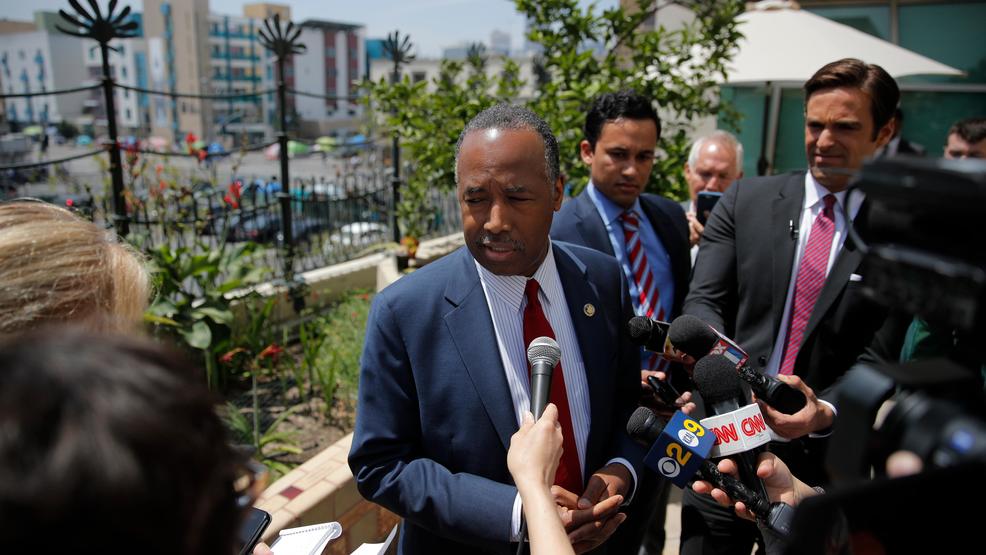Millions of families living in federally subsidized public housing would pay more for rent under a proposal unveiled Wednesday by Housing and Urban Development Secretary Ben Carson.
The proposal would have to be approved by Congress, where it could touch off a debate over how best to support some of the country’s poorest and most vulnerable families. Democrats will likely put up fierce resistance and some members of the Republican majority will be reluctant to embrace it ahead of midterm elections in the fall.
Dubbed the Make Affordable Housing Work Act, the plan would raise the rent paid by public housing residents to 35 percent from 30 percent of household income and eliminate all deductions that could lower that number. These rents would now be evaluated every three years instead of annually. Elderly and disabled tenants, who constitute more than half of the 4.7 million public housing families, would be exempted.
Carson said the changes are necessary to bring more money into the system and revamp an antiquated model.
“The way we calculate the level of assistance to our families is archaic and has perverse consequences, like discouraging these residents from earning more income,” Carson said in an interview with The Associated Press. “It’s clear from a budget perspective and from a human standpoint that this is not sustainable.”
But tenants’ rights advocates are already up in arms. Jack Cooper, executive director of the Massachusetts Union of Public Housing Tenants, called the proposal “a war on low-income people.”
Cooper said he understands how the concept appeals to Carson, whom he called “a bootstrap guy.”
A retired neurosurgeon, Carson grew up in poverty in Boston and Detroit, although he never lived in public housing. He has long promoted the idea that too much government support creates a culture of dependency among the recipients. During a 2016 speech at his alma mater, Yale University, Carson said: “Government should not keep people in a dependent state. It should be used as a springboard, and not as a hammock.”
But Cooper said that instead of encouraging greater self-sufficiency, the likely effect will be to force families into homelessness. He said the nationwide average annual income for public housing residents was $12,000 and many families simply won’t be able to keep up with the additional expenses.
“We’re talking about keeping a roof over people who can’t afford the market,” he said. “They’re devastating folks that are already in dire straits.”
(AP)












2 Responses
I’m a little confused here. How can raising their rent encourage an 80 year old widow or a disabled person to make more money? For a person on a small fixed income – Social Security or disability – raising their rent from 30% to 35% of their already limited income can have a disastrous effect. The person might have to not fill necessary prescriptions, or buy less food than they need, to make up that extra 5%.
And then there are the families with limited income and small children, who may become homeless, forego medical care for the children, or simply have less for the children to eat.
Dr. Carson may have grown up in poverty, but he seems to have forgotten one major fact – most poor people aren’t poor by choice. HKBH mandates that we provide for the poor, sick and helpless, and that includes the poor of the nations (for darchei shalom if nothing else). Remember that the sin for which S’dom was destroyed was oppressing the poor. Aren’t we risking coming to the same end when we support the policies of S’dom?
Dear midwest2
I can help u with your confusion by asking u to read the article again.
1)”Elderly & Disabled people will be exempt”
2) regarding helping the poor, even as halach the biggest tzdukah is when u help the poor become independant and that should alwaya be the goal. To give but at the same time havè them get on their own feet….